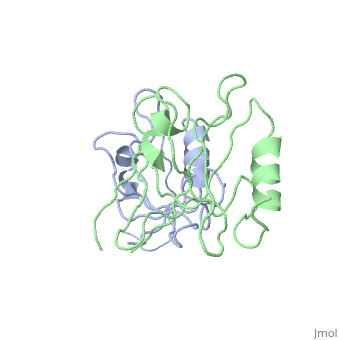Syntrophin
FunctionSyntrophins (Syn) are a family of membrane-associated adaptor proteins which are important components of many signaling events: regulating the postsynaptic signal transduction, sarcolemmal localization of brain NOS and G-protein mediated signaling [1]. DiseaseMutations in Syn which interacts with sodium channel cause the inherited disorder long-QT syndrome resulting in sudden cardiac death[2]. RelevanceStructural highlightsSyn is characterized by a plekstrin homology domain(PH) which is split by a PDZ domain and a C-terminal Syn unique domain. Syn binds the neuronal NOS β-finger via its binding groove[3].
|
| ||||||||||
3D Structures of syntrophin3D Structures of syntrophin
Updated on 25-December-2017
ReferencesReferences
- ↑ Bhat HF, Adams ME, Khanday FA. Syntrophin proteins as Santa Claus: role(s) in cell signal transduction. Cell Mol Life Sci. 2013 Jul;70(14):2533-54. doi: 10.1007/s00018-012-1233-9. Epub , 2012 Dec 21. PMID:23263165 doi:http://dx.doi.org/10.1007/s00018-012-1233-9
- ↑ Wu G, Ai T, Kim JJ, Mohapatra B, Xi Y, Li Z, Abbasi S, Purevjav E, Samani K, Ackerman MJ, Qi M, Moss AJ, Shimizu W, Towbin JA, Cheng J, Vatta M. alpha-1-syntrophin mutation and the long-QT syndrome: a disease of sodium channel disruption. Circ Arrhythm Electrophysiol. 2008 Aug;1(3):193-201. doi:, 10.1161/CIRCEP.108.769224. PMID:19684871 doi:http://dx.doi.org/10.1161/CIRCEP.108.769224
- ↑ Hillier BJ, Christopherson KS, Prehoda KE, Bredt DS, Lim WA. Unexpected modes of PDZ domain scaffolding revealed by structure of nNOS-syntrophin complex. Science. 1999 Apr 30;284(5415):812-5. PMID:10221915
